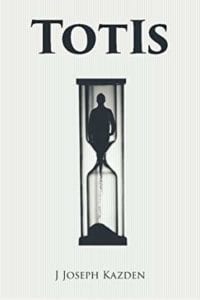
Shelf Unbound: You came to an epiphany in 2012, which inspired this book. What can you tell us about the epiphany?
Joseph Kazden: I have been exploring the nature of knowledge and human perception since I was a boy. At 12 or 13, while walking home from school, and following the yellow traffic line down the center of our deserted neighborhood street, it hit me that the veil separating sanity and insanity was as easily crossed as stepping to the left or right of that yellow line. It was revealed to me, at this young age, that major shifts in perception and behavior could be driven by the tiniest of movements. Over the course of the next 12 years, my studies led me in two directions. One was in math and science, which I loved and had an aptitude for. The other was in alternative, for the times, philosophies and religions, especially eastern ones. I innately felt that the worlds of science and metaphysics, with their own unique experiences and knowledge, were deeply connected along the continuum of one seamless reality.
Late one night, in early 2012, I awoke with a start. I had seen the outlines of this persistent illusion and how it functioned in reality, and knew that I had to put this tenuous idea on paper, for if I went back to sleep it would disappear. For the next three years I would struggle to bring it into clarity.
Shelf Unbound: What existential questions have you been seeking to answer?
Kazden: My mother was Catholic and my father Jewish. I was both baptized and received communion, as well as attending Hebrew school and having a bar-mitzvah. Eventually, though, I came to realize that these two, mutually exclusive ideologies couldn’t both be true. And yet, I yearned for their promise, something that might reveal what is true, whatever that may be.
Shelf Unbound: Where did the idea for the book’s structure come from?
Kazden: I flashed back to The Republic, by Plato. I remembered how using the Socratic method, Plato was able to bring the reader on a journey of discovery during which the ideas themselves came naturally into focus. This was when the idea to write my treatise in such a manner came to me.
